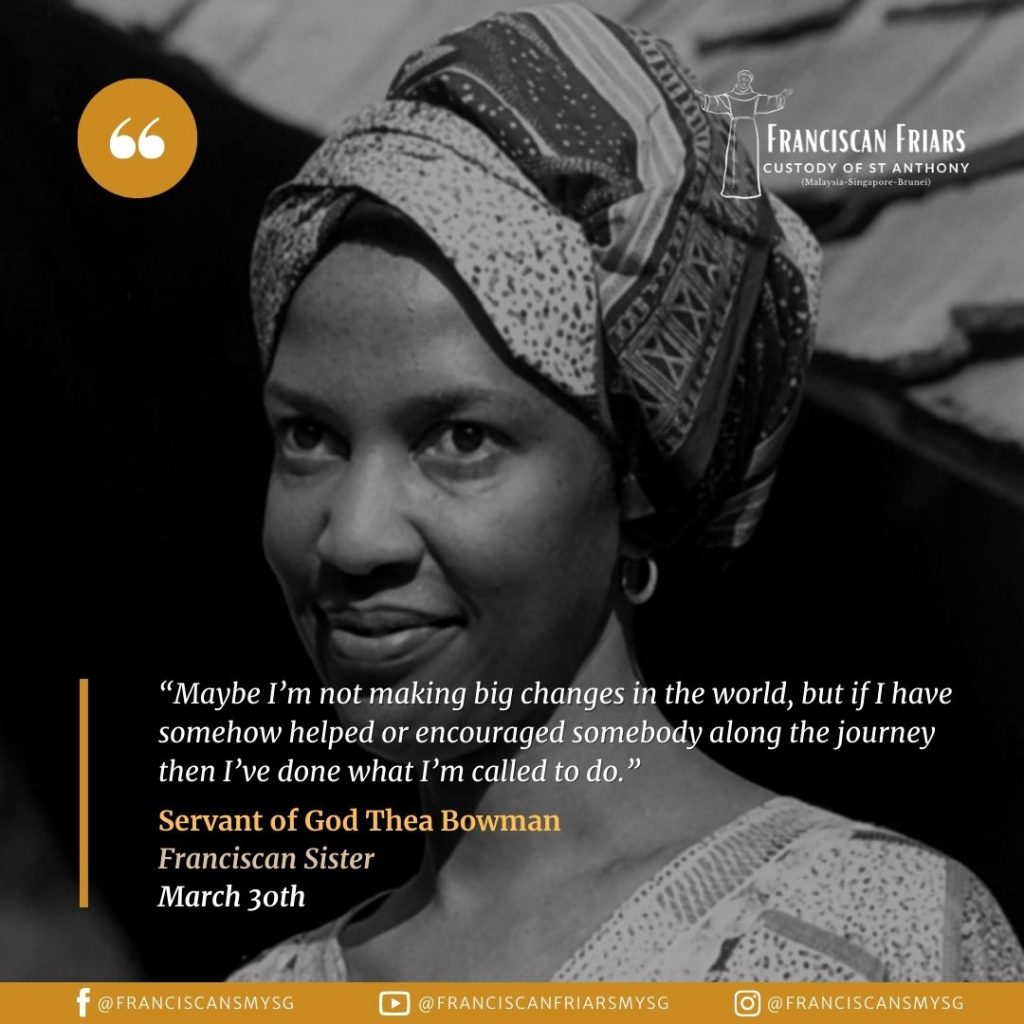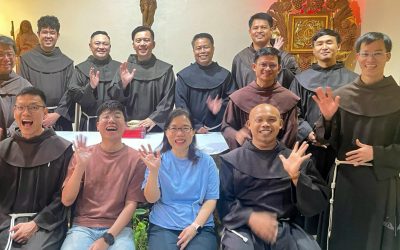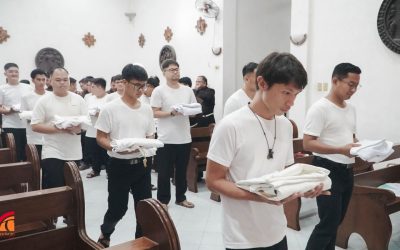
Thea Bowman was one of the great treasures of the American Catholic Church. Ablaze with the spirit of love, the memory of struggle, and a faith in God’s promises, she impressed her audiences not just with her message but also with nobility of her spirit.
Born Bertha Bowman in rural Mississippi, she was baptized as a Catholic at the age of ten, while attending parochial school. Later, she was inspired to enter the congregation that ran her school, the Franciscan Sisters of Perpetual Adoration, and took the name Sister Thea. She found herself the only African American in a white religious order. But she had no desire to blend in. She believed her identity as a black woman entailed a special vocation; she was committed to asserting a black way of being Catholic. Thus, she believed the Church must make room for the spiritual traditions of African Americans, including the memory of slavery, but also the spirit of hope and resistance reflected in their spirituals, the importance of family, community, celebration and remembrance.
“What does it mean to be black and Catholic?” she asked. “It means that I come to my church fully functioning. I bring myself, my black self, all that I am, all that I have, all that I hope to become. I bring my whole history, my traditions, my experience, my culture, my African-American song and dance and gesture and movement and teaching and preaching and healing and responsibility as gift to the Church.”
She was a spellbinding speaker who preached the Gospel to audiences across the land, including the US bishops. In one speech, she noted that women were not allowed to preach in the Catholic Church. But this should not stop them from preaching everywhere else!
God has called to us to speak the word that is Christ, that is truth, that is salvation. And if we speak that word in love and faith, with patience and prayer and perseverance, it will take root. It does have power to save us. Call one another! Testify! Teach! Act on the Word! Witness!
After being diagnosed with incurable cancer she bore a different kind of witness. She continued to travel and speak, even from her wheelchair. The faith that sustained the slaves, the hope expressed in the spirituals, the love embodied by St. Francis, now sustained her in her personal way of the cross. And to her other gifts to the Church she added the witness of her courage and trust in God. “I don’t make sense of suffering. I try to make sense of life,” she said. “I try each day to see God’s will.”
She died on March 30, 1990, at the age of fifty-two. Her cause for canonization is in process.





0 Comments